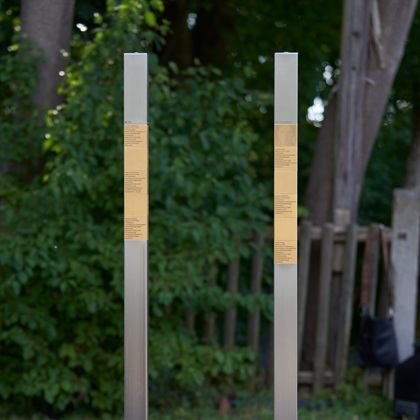Friday, 18 July 2025
4.00 pm
Commemorative event Neuaubing Memorial
Ehrenbürgstraße 9
- City Councillor Sebastian Weisenburger on behalf of the Lord Mayor of the City of Munich
- Dr Paul-Moritz Rabe, Munich Documentation Centre for the History of National Socialism
- Larisa Borisenko, relative of Efrosinija Surdakowa
- Peter Heesch, Freie Ateliers und Werkstätten Ehrenbürgstraße e.V. (FAUWE)
- Antje Brandl, Settlers' Association of Dornier-Eigenheimer e.V.
- Members of the settlers' association read out the biographies
- Sebastian Kriesel, District Committee Aubing-Lochhausen-Langwied
- Music: Ute Kalmer (clarinet) and Petra Maull (accordion)
Installation of the Memorial Signs for Ivan Blyznyuk, Anita Hoffmann, Andriy Kirichenko, Emiliya Kriger, Seitiagop Mimikleo, Antonio Salvatore, Vasyl Shaferost, Efrosiniya Surdakova, Jacobus Verwoerd, Wincenty Więcek and Maria Wojciechowska.
Followed by a reception in front of the entrance to the site of the former Neuaubing Reichsbahnlager and a tour of the NS Documentation Centre on the former site of the camp.
Flyer (PDF)



